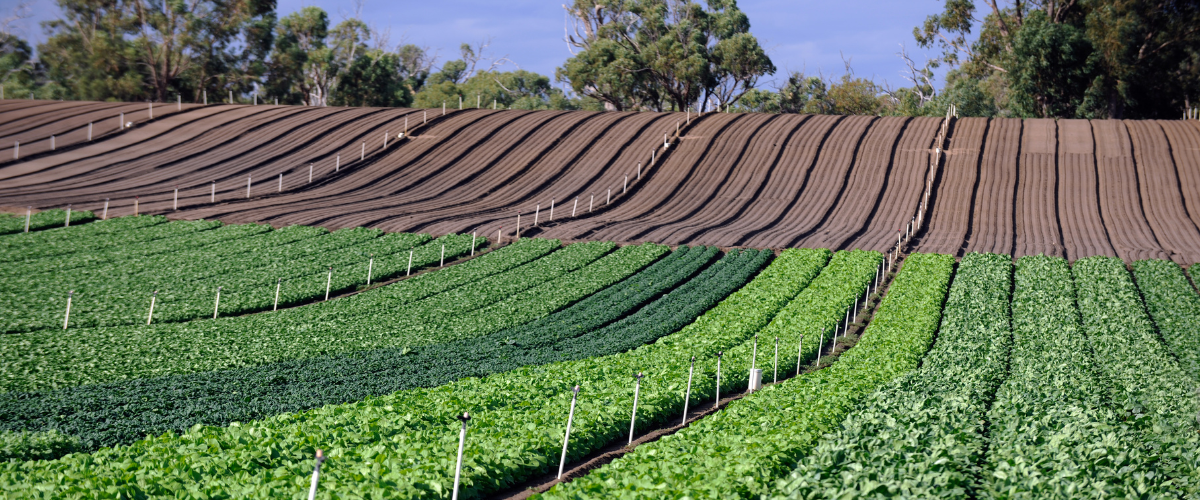Food Security – AUSVEG submission overview
AUSVEG submitted a response this week to the Standing Committee on Agriculture, Inquiry into Food Security in Australia.
The AUSVEG submission focused on eight key areas, including supply chain resilience, consumption, competition, cost of production including workforce, biosecurity, climate change, food waste, and exports.
The Australian vegetable industry faces significant challenges, including extreme weather events, to constant threat of biosecurity incursions and shortages to workforce and vital farm inputs such as fertiliser and chemicals. Australia produces an abundance of food with our farmers providing over 90% of our domestic food supply. It is forecasted that agricultural exports could reach over $70 billion in 2022-2023, providing high quality produce to international markets who are reliant on our produce.
Whilst Australia has little risk of becoming food insecure, there is the risk that our food will become unaffordable and unavailable. AUSVEG acknowledges that food insecurity does exist in parts of Australia, including regional and remote communities and lower socio-economic communities which may have issues accessing healthy, nutritious food at affordable prices.
Whilst our current trajectory sets us to reach $8 billion by 2030, we also have aging farmers, few people entering the industry and looming global threats. AUSVEG outlined in their submission how to address the industries core issues around food security and create changes that will have flow on effects to other industries and communities domestically and abroad.
AUSVEG has made 20 recommendations in the submission:
- Develop a National Food Supply Chain Resilience Plan.
- Government better support Australian households to access healthy, nutritious foods including $100m to develop and execute a national strategy and behaviour change program to increase fresh vegetable consumption.
- Investing in a marketplace transparency tool for the vegetable and potato industry.
- Make the Food and Grocery Code mandatory.
- Develop Unfair Practices Provision in the Competition and Consumer Act.
- Increase sovereign capability by investing in local manufacturing facilities to develop key inputs such as fertiliser.
- Improve seasonal worker movement flexibility within the PALM scheme.
- Re-connect under participating countries back into the PALM scheme.
- Develop a dedicated Agriculture Visa or Harvest Work Visa.
- Support unemployed Australians to reintegrate back into the workforce.
- Support on-farm initiatives to increase farm sustainability, i.e. renewables funding and waste recycling.
- Develop a National Labour Hire Licensing Scheme to improve working conditions and attract more workers into the sector.
- Incorporate Agriculture into Australian primary and secondary curriculum.
- Restart consultation on the Biosecurity Imports Levy with stakeholders, with a view to implementation.
- Government reform to increase capacity and capability of critical government services in biosecurity through increased and sustained funding.
- Immediate increase in resources to support plant pest incursions like the Varroa mite response and other on-going threats.
- Develop a measurable implementation plan to measure progress against the National Biosecurity Strategy.
- Provide industry with opportunity to engage at the national level in area of priority setting, decision making and planning.
- Develop on-farm workshops to educate growers about mitigating climate risks and regenerative practices to ensure ecosystems are protected for the long term.
- In development of a future food security plan, the utilisation of food waste needs to be given integral consideration.
AUSVEG’s submission to the Inquiry into Food Security in Australia is supported by our state members including: AUSVEG VIC, AUSVEG SA, Growcom, vegetablesWA, NSW Farmers, NT Farmers, WA Potatoes, and TFGA.
To read AUSVEG’s submission, please click here.

